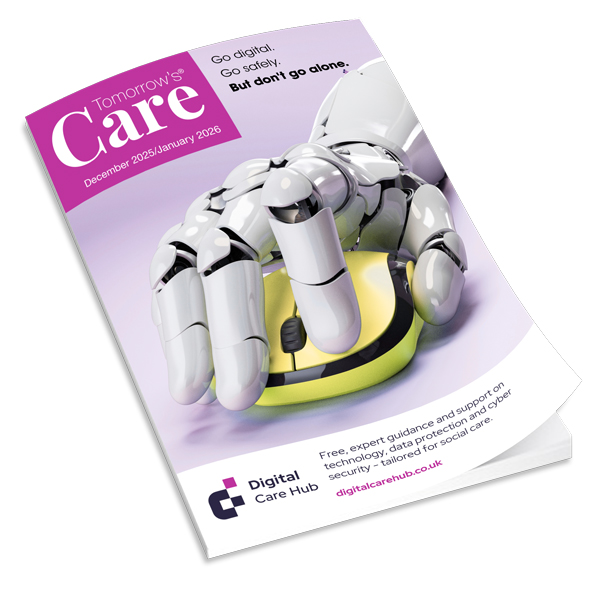Jo Hesketh, Care UK’s Corporate Apprenticeships Manager, debunks some commonly held misconceptions about apprentices in social care in 2022.
All apprentices are young and just leaving school
This is a myth which probably has its roots in memories of apprenticeships from a hundred years ago. These days, if an employer has an apprenticeship scheme, it will probably be open to anyone who is employed in a role where there is an opportunity to gain another qualification to help the employee do their job better and to prepare them for their next role.
Care UK’s most mature apprentice is 67 years old.
More than 30 of Care UK’s apprentices are people with several years of experience in the sector who are studying leadership qualifications so that they can be a care home manager or deputy manager in the future.
Seven people on a Care UK apprenticeship are aged over 60.
Apprenticeships are advertised on job boards
In general terms, Care UK does not recruit apprentices. What it does is recruit people with the right values and attitude to specific roles – often on the understanding that training will be required, or on offer, if they wish to learn more. Once they start work, they can then join the most appropriate training apprenticeship which might be anything from Level 2 adult care worker diploma to a Level 5 leader in adult care for a care home manager, depending on their experience.
Social care apprenticeships are only about learning to deliver care
At Care UK, yes there will be lots of people in apprenticeships learning to deliver great care to residents but there are a lot of other professions with apprenticeships on offer.
For example, Care UK is the first provider in the country to establish its own Chef Academy offering a bespoke course for people with some kitchen experience who aspire to run their own care home kitchen team. There are also maintenance people and housekeepers in training as well as people undertaking leadership development and studying business administration.
Social care apprenticeships are only for people working in care homes
People often forget that care homes which are part of a larger group will have support teams who are dedicated to helping home managers deliver the best care possible to residents. From its Colchester-based support office, a number of learners have benefited from an apprenticeship course in topics ranging from IT support to team leading. The latest apprenticeship development is Care UK’s first trainee in communications who will use her studies towards a Level 3 qualification to help care home teams to tell the great stories about how residents live fulfilling and enjoyable lives in their homes.
Apprentices don’t earn a proper wage
Technically, it is legal for young apprentices to earn less than the national living wage but this is not the case at Care UK. Here everyone is paid the going rate for the role they do – even 16 and 17-year-olds. On successful completion of a qualification, most apprentices get a small enhancement to their salary as well as the opportunity to seek promotion or get started on a further qualification.
Apprenticeships don’t get real training – it’s all on the job
Every apprentice must spend at least 20% of their working time in formal training. These days, much of this delivered via online learning with assessments and formal tutorial sessions. Yes, there’s always a practical element of putting into practice what they have learnt but the key is to provide the genuine learning that gives everyone a foundation for their next career move.
Apprentices aren’t guaranteed a job at the end of their apprenticeships
At Care UK we don’t recruit apprentices – we recruit people into genuine roles and then start them on a course if it’s appropriate to their role. So, as long as they complete the course and fulfil their duties in line with their job description, then they will almost always have a job at the end.
More importantly, they won’t just have their job but the new qualification opens up additional possibilities for promotion. It has been calculated that an ambitious person could, in theory, go from being new to care to a deputy home manager in five years if they took up all the bespoke training opportunities Care UK offers.
Apprenticeship training courses are too generic to be of use in a specific role
Like most social care employers with an apprenticeship scheme, Care UK works with a highly experienced training partner, Lifetime, to create bespoke qualifications that deliver exactly the skills someone needs to work in one of its homes or its support office. They are specific to the needs of given roles – whether learning to care for older people, creating restaurant-quality meals or to lead a high-performing care home team.
Apprenticeships are only for people new to an organisation
This is a very big myth. Apprenticeships help Care UK’s experienced colleagues to formalise their knowledge and progress their career. Someone might have worked for the provider for several years but then decide they wish to improve their knowledge and career prospects by, for example, undertaking a leadership qualification. This happens all the time. Many people doing this wouldn’t classify themselves as apprentices – they are simply learners on a course – but the terminology doesn’t matter, it’s developing people, bringing even better care for residents and giving them a recognised qualification that’s the benefit.
Apprentices have to contribute to their qualification fees
Wrong. The funding of apprenticeships comes from a levy imposed (mainly) on employers with an annual pay bill of more than £3m. This levy funds the entire cost of a course for the individual learner. Someone heading off to university for a business degree might incur debts of over £40,000, but someone following the apprenticeship route up to level 5 has a qualification on a par with a degree in leadership but won’t have parted with a penny in tuition fees.
Visit here to find out more about opportunities with Care UK





















